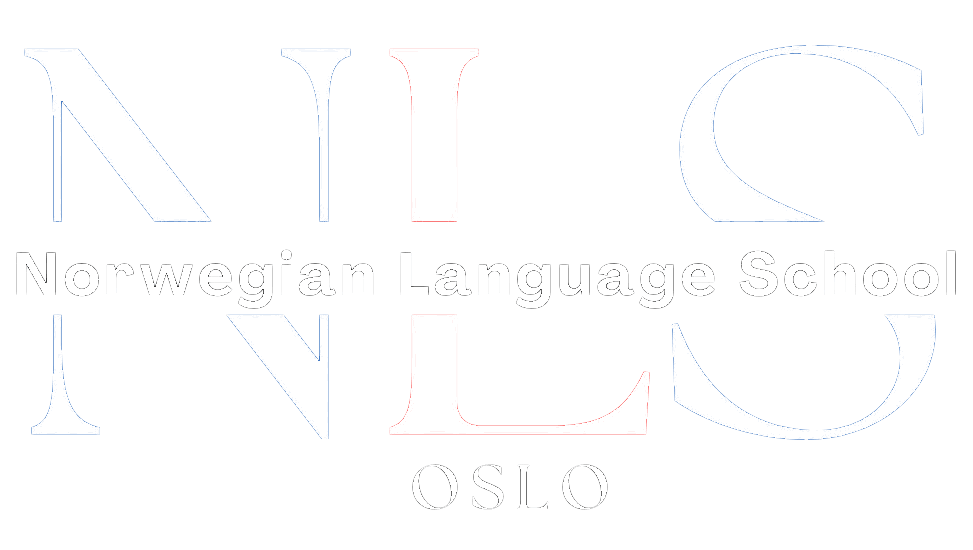
Exploring Female Norse Mythology Goddesses & Heroes
Have you ever wondered about the powerful female figures in Norse mythology? The tales of gods and heroes often dominate discussions about Norse lore, but what about the women who played equally significant roles in shaping this rich mythological tradition?
In this article, we will embark on a journey to uncover the captivating stories of the goddesses and valiant heroines of Norse mythology. From Freyja, the goddess of love and beauty, to the fierce warrior Valkyries, these female figures hold a special place in the Norse pantheon and culture.
Table of Contents
ToggleKey Takeaways:
- Female Norse mythology figures played significant roles in shaping Norse legends and folklore.
- Women had essential presence in the Norse pantheon and were represented as deities in Norse religion.
- Goddesses such as Freyja, Frigg, and Hel had tremendous influence over various aspects of Norse culture and society.
- Norse sagas often feature brave and defiant female heroes who defied societal norms.
- Women in Norse folklore symbolize strength and resilience, leaving a lasting impact on the mythology as a whole.
Women in Norse Myths: An Essential Presence in the Norse Pantheon.
In Norse mythology, women play a crucial and influential role, serving as powerful figures in the Norse pantheon. Their presence is not only significant in terms of representation but also essential in understanding the dynamic nature of Norse religion and mythos.
Female deities in Norse religion embody a wide range of qualities and attributes. They are revered for their strength, wisdom, and ability to shape the destinies of gods and mortals alike. These goddesses hold dominion over various aspects of life, including love, fertility, war, nature, and magic.
One prominent example is Freyja, the goddess of love, beauty, and fertility. Her captivating presence is felt in every corner of Norse mythology, making her a beloved and revered figure. Additionally, Freyja’s powers extend beyond her association with love, as she is also a formidable warrior and practitioner of powerful magic.
The female deities in Norse mythos also serve as role models for mortal women, exemplifying bravery, determination, and resilience. They challenge traditional gender norms and defy societal expectations by demonstrating their ability to navigate the realms of both the divine and the mortal.
Throughout the Norse sagas and poems, female characters often possess agency and assert their influence in ways that shape the course of events. They make decisions, engage in battles, and exhibit leadership qualities that command respect and admiration. These heroic women are not mere supporting characters but rather central figures, driving the narrative forward with their strength and conviction.
“The women of Norse mythology embody power, wisdom, and resilience. Their stories serve as a reminder that strength knows no gender.”
It is important to recognize the significance of women in Norse folklore, as their representation in myths and sagas offers invaluable insight into the cultural and societal dynamics of the time. Their stories challenge traditional gender norms and highlight the multifaceted roles women played in Norse society.
Female Deities in Norse Mythology
| Goddess | Domain |
|---|---|
| Freyja | Love, beauty, fertility |
| Hel | Underworld, death |
| Skadi | Winter, mountains, hunting |
| Frigg | Marriage, motherhood, wisdom |
| Sif | Agriculture, fertility, grain |
As we delve deeper into the stories of these exceptional female deities and their enduring influence on Norse mythology, we gain a greater appreciation for their integral role in shaping the rich tapestry of Norse lore.
The Goddesses of Norse Mythology: Powerful Beings of Great Influence.
In Norse mythology, the pantheon of gods and goddesses is teeming with powerful and influential figures. Among them, the norse goddesses stand out as formidable beings who play significant roles in shaping the lore and culture of the Norse people.
One such goddess is Freya, the goddess of love, beauty, and fertility. Known for her captivating allure and fierce warrior spirit, Freya embodies the duality of feminine strength and sensuality. She is revered as a powerful figure who grants blessings of love and abundance to those who invoke her name.
Another prominent norse goddess is Frigg, the wife of Odin and queen of Asgard. As the goddess of marriage, motherhood, and wisdom, Frigg is a symbol of familial and domestic power. She possesses great knowledge and foretells the future but keeps her insights hidden to protect the integrity of the gods and the world.
Skadi, the norse goddess of winter and hunting, represents the indomitable spirit and resilience of the Norse people. As a skilled archer and hunter, Skadi teaches the importance of perseverance and self-reliance. Her strength in the face of adversity inspires many to face the challenges of life with unwavering determination.
“The goddesses of Norse mythology are not only powerful but multifaceted in their attributes and abilities. Their influence extends beyond specific domains, as they command elements of love, marriage, fertility, wisdom, and strength. These powerful female figures in Norse lore shape the very fabric of Norse culture and society.”
These are just a few examples of the norse goddesses who reign supreme in Norse mythology. Each goddess represents a distinct aspect of life, offering guidance, protection, and inspiration to the Norse people. Their stories and influence are woven into the tapestry of Norse culture, leaving a lasting legacy for generations to come.
Norse Goddesses
| Goddess | Domain | Attributes |
|---|---|---|
| Freya | Love, beauty, fertility | Warrior spirit, sensual allure |
| Frigg | Marriage, motherhood, wisdom | Protector, seeress, wise counsel |
| Skadi | Winter, hunting | Resilience, determination, self-reliance |
As evidenced by the diverse roles they embody, the norse goddesses are powerful female figures in norse lore. Their influence over different aspects of life reflects the high regard the norse people hold for the strength and wisdom of women. These goddesses continue to inspire and empower individuals today, reminding us of the enduring power that resides within all of us.
Female Heroes in Norse Sagas: Bravery Beyond Boundaries.
In Norse sagas, the presence of powerful female figures is not limited to goddesses alone. There are numerous female characters in Norse sagas who display extraordinary bravery and defy societal norms of their time. These valiant women navigate treacherous landscapes, engage in daring battles, and demonstrate unwavering determination in the face of adversity.
One notable female character in Norse sagas is Lagertha, a legendary shieldmaiden and warrior. Lagertha is depicted as a fierce and skilled fighter, often leading her own band of warriors into battle. Her strength and courage make her a celebrated figure in Norse lore, inspiring admiration and respect.
Another remarkable female hero in Norse sagas is Sigríður the Proud, who lived during the early Viking Age. Sigríður is known for defending her family and property against ruthless attackers, exhibiting incredible bravery and resourcefulness.
“The tale of Sigríður the Proud is a testament to the indomitable spirit of female heroes in Norse sagas. Her unwavering courage in the face of danger serves as an enduring example of bravery beyond boundaries.”
Skuld, one of the Norns and a powerful seeress in Norse mythology, also appears in the sagas as a formidable character. Skuld’s prophetic abilities and her vital role in determining the destiny of warriors on the battlefield cement her status as a powerful female figure in Norse sagas.
The stories of these female heroes in Norse sagas not only provide captivating narratives but also challenge traditional gender roles and highlight the strength and resilience of women in Norse society. These characters serve as inspirations for individuals seeking to break free from societal constraints and embrace their own inner strength.
Explore the table below for a comparison of the notable female heroes in Norse sagas:
| Heroine | Known For | Significance |
|---|---|---|
| Lagertha | Legendary shieldmaiden and warrior | Inspiring figure, defied gender expectations |
| Sigríður the Proud | Defending family and property against attackers | Symbol of bravery and resourcefulness |
| Skuld | Powerful seeress and Norn | Prophetic abilities and influence over destiny |
These female heroes in Norse sagas continue to captivate audiences with their indomitable spirit and unwavering bravery. Their stories serve as reminders that true strength knows no boundaries and that women have played a significant role in shaping the rich tapestry of Norse mythology and folklore.
Conclusion.
Throughout Norse mythology, the significance of women in Norse folklore is undeniable. These powerful female figures, including goddesses, heroines, and symbols of strength, played essential roles in shaping the Norse pantheon and cultural beliefs.
The goddesses of Norse mythology embodied different aspects of life and nature, symbolizing fertility, protection, wisdom, and war. They commanded respect and admiration, influencing every aspect of Norse society. Their stories and attributes served as inspiration for generations to come, showcasing the immense power and influence that women held in Norse folklore.
Similarly, the brave heroines of Norse sagas defied societal norms and showcased exceptional courage in the face of adversity. Their bravery and resilience serve as a testament to the strength of women in Norse folklore. Their stories inspired others to challenge the status quo and strive for greatness, regardless of gender.
In summary, the significance of women in Norse folklore cannot be overstated. Their roles as goddesses, heroines, and symbols of strength have left an indelible mark on Norse mythology, shaping the cultural beliefs and values of the Norse people. By acknowledging and celebrating the power and influence of these female figures, we gain a deeper appreciation for the diverse and multifaceted nature of Norse mythology.
FAQ
Who are some powerful female figures in Norse mythology?
What roles did women play in Norse myths?
Are there any female deities in Norse religion?
How were women represented in Norse mythos?
Who were some influential goddesses in Norse mythology?
Can you share some stories of brave female heroes in Norse sagas?
What made women in Norse sagas brave beyond boundaries?
What is the significance of women in Norse folklore?

Norwegian A1-A2
Course Overview The Norwegian A1-A2 course is an online program focused on teaching essential Norwegian grammar and vocabulary. It includes a variety of materials and topics, with opportunities to interact with a Norwegian teacher entirely online. Curriculum Highlights The course covers key areas such as grammar and vocabulary and topics such as family, daily life, education, work, traditions, and leisure activities. Who Should Enroll? This course is perfect for beginners or those at the A1 or A2 levels who want to improve their Norwegian skills. What You Get Access to the full Norwegian A1-A2 course. A monthly 1-hour online conversation with a teacher. Many written and oral assignments. Comprehensive information on Norwegian grammar, Norwegian vocabulary and how to use them, important sentence structures, etc. Tips on additional resources to further enhance your Norwegian learning.
0 students enrolled
Last updated Dec 10th, 2024
If you want to learn Norwegian, you can register for classes here. We look forward to hearing from you and helping you become fluent in Norwegian.





